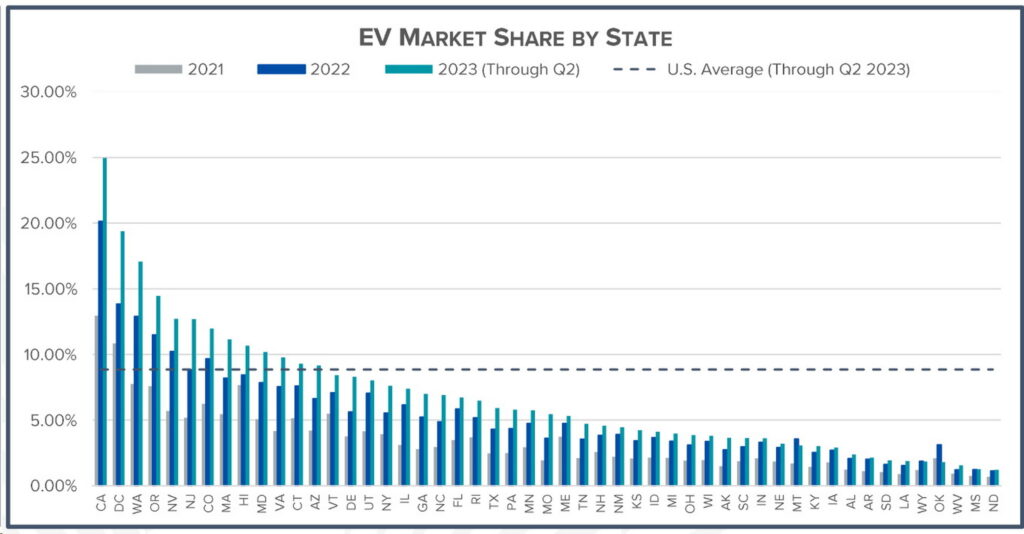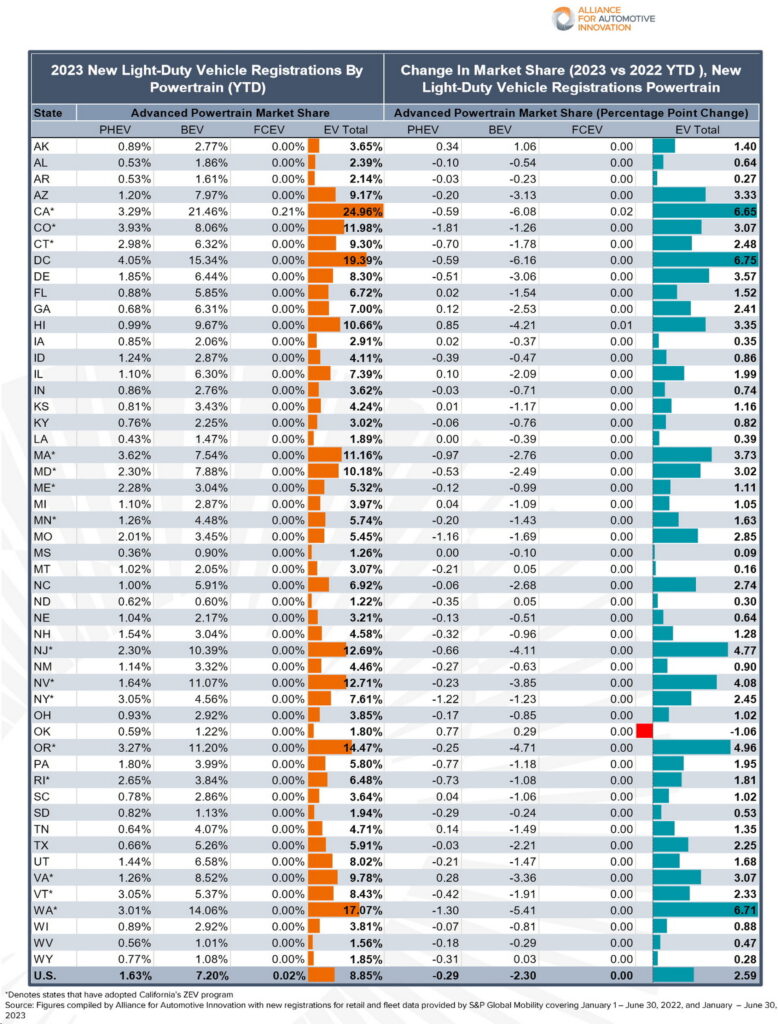California led the United States in sales of EVs, with the green vehicles accounting for roughly 25 percent of transactions in the market in the first half of 2023. In fact, the majority of states saw EV sales increase in the first six months of the year, but data suggests that the enthusiasm with which a state’s consumers go electric tends to reflect the dominant political party there.
Data gathered by the Alliance for Automotive Innovation, an industry lobby group, shows that the five states with the highest proportion of EV registrations in H1 2023 were California, the District of Columbia, Washington, Oregon, and Nevada, all Democrat strongholds.
By contrast Wyoming, Oklahoma, West Virginia, and Mississippi were all among the states adopting EVs the slowest, per the Alliance. North Dakota was the state with the lowest rate of sales in the nation, and just 1.2 percent of the vehicles sold there were electric.
Read: U.S. Senate Overturns Biden’s ‘Buy America’ Waiver For EV Chargers

The findings reflect a growing theme in the American auto industry, as President Joe Biden has made EV adoption one of the central pillars of his administration. By introducing new tax incentives for EV buyers, and investing in charging infrastructure, the White House is betting big on electric and the domestic jobs the technology has the potential to create.
Meanwhile, the Republican Party is increasingly showing resistance to electric vehicle technology. Recently, they played a key role in overturning a waiver in the U.S. Senate, a move that could complicate the installation of charging stations in the near future. Additionally, Bloomberg reports that the party is attempting to impede the government’s efforts to finalize emissions regulations through the Choice in Automobile Retail Sales (CARS) Act, which is still pending a vote.
And the automotive industry is noticing. Bill Ford, the executive chair of the Ford Motor Company, recently said, “I never thought I would see the day when our products were so heavily politicized, but they are.”
However, politics aren’t the only factor. While the general trend shows that EV sales are stronger in blue states, that’s not the case everywhere. For instance, more than eight percent of new vehicles sales were electric in Republican Utah, while in Democrat-led New York, sales were stuck at just 7.6 percent.
In addition to following party lines, Bloomberg points out that EV sales tend to be high in states with high fuel prices — which follow a more complicated calculus than simple political affiliation.
By and large, these figures precede the more recent cooling of the electric vehicle market, however. Whether these state by state differences will intensify in the second half of the year will be interesting to track.





